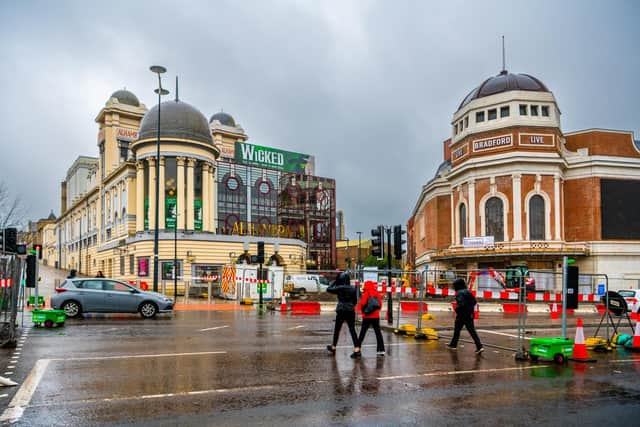Battleground Yorkshire: Muslim voters are turning against the main parties
“The Muslim community has seen this country at war, or involved in wars, in Iraq, Syria, Libia, Afghanistan and now in Gaza,” says Mr Mohammed.
“Muslims just want to see an end to political parties supporting wars in their part of the world.”
Advertisement
Hide AdAdvertisement
Hide AdFor these voters at the next election, unlike arguably any other section of the population, foreign policy is highly likely to be the top of their list of priorities when it comes to voting.


The conflict in the Middle East is a fringe issue for many in the UK, with many voters having no view over the conflict beyond what they catch on news bulletins or social media.
“The Muslim community doesn't really focus on the mainstream media and has access to media all over the world, so they see pictures that the rest of society may not see,” says Mr Mohammed.
“There's a lot of unhappiness with the mainstream political parties on what they see as total support for the state of Israel and, and really nothing for the Palestinians. So there's a lot of anger about that.”
Advertisement
Hide AdAdvertisement
Hide AdThe disconnect between voters and their priorities extends to a wider sense of disconnect between many British Muslims and the rest of society, with the integration of Muslim communities failing to be as strong as many would hope.
“Muslims are constantly in the news presented as a threat, and that impacts people who really have no contact with the Muslim community, their worldview is framed around that and that can cause tension,” says Mr Mohammed.
“I think the Muslim community themselves have realised that they need to deal with that image and they’ve started opening their mosques, having open days, doing food banks, reaching out to the wider community to show they are not what they are being portrayed as in the media.”
However, post-Covid there are fewer opportunities for proper integration and multiculturalism, with fewer people mixing in an office, and a decline in community spaces.
Advertisement
Hide AdAdvertisement
Hide Ad“In the days of the mills when the first generations were here, the workplace was where people integrated and once that’s declined nothing really has replaced that.
“I live on a street, which is a professional street, and I rarely see my neighbours. We’re not really a cohesive people anymore in society.
“There’s a wider debate about how the whole of society becomes more connected to each other and more understanding of each other.
Change, Mr Mohammed says, has to come from the most confident members of the Muslim community, rather than expecting all Muslims to take the lead in pushing for greater integration.
Advertisement
Hide AdAdvertisement
Hide Ad“A lot of the people in Muslim communities, although it’s getting better with the younger more educated Muslims, don’t have the confidence to go out and deal with others.
“On the one hand you have the mainstream community reading all the stories in the media about the Muslim threat and what Muslims are up to, such as grooming gangs, that also affects the Muslim community.
“As they read more and more and they see the response, there’s a tendency to look inwards and think “my God, people hate us”.
“A lot of people outside the community or in positions of power, whether in schools, whether in politics, or councillors have to take the lead on that.
Advertisement
Hide AdAdvertisement
Hide Ad“It can’t be the responsibility of those who are struggling to survive, whether that be the white working class or the Muslim community, you can’t put that onus or burden on them.
“We can only create more avenues, you can’t force people to come to a mosque to learn about it, we just have to encourage Muslim institutions and non-Muslim institutions to work better at it”
Comment Guidelines
National World encourages reader discussion on our stories. User feedback, insights and back-and-forth exchanges add a rich layer of context to reporting. Please review our Community Guidelines before commenting.